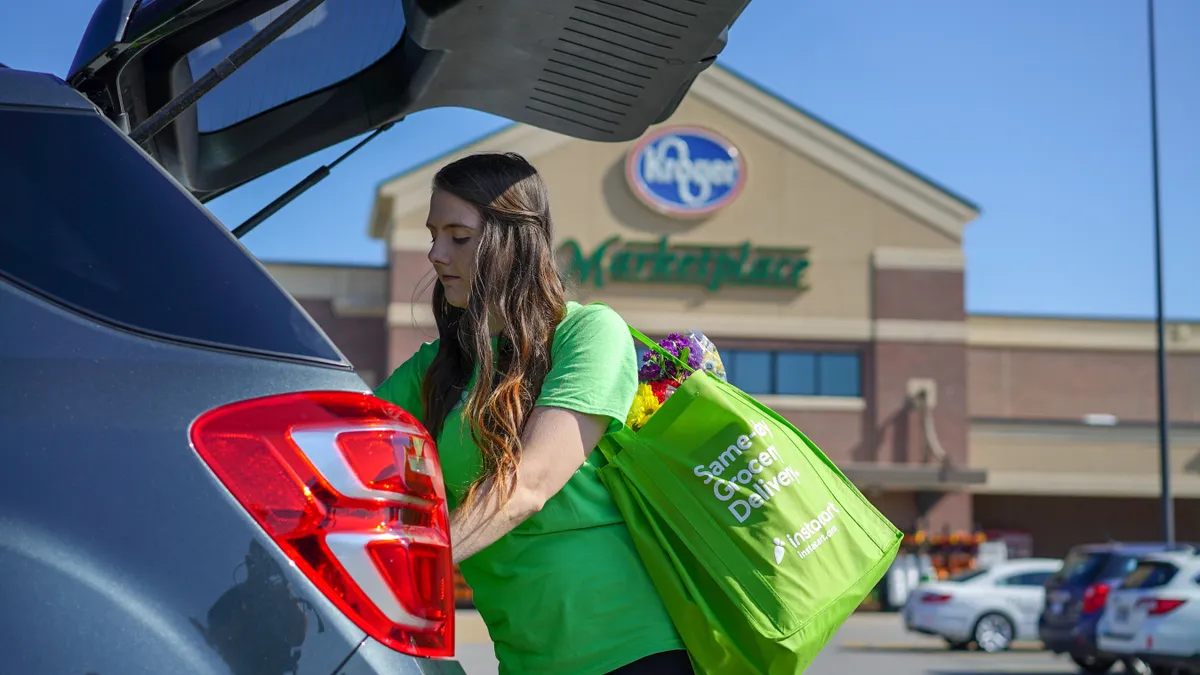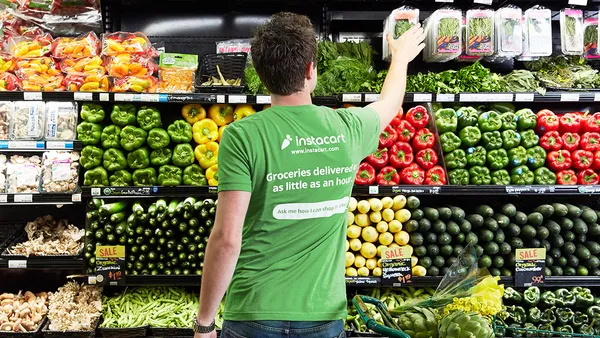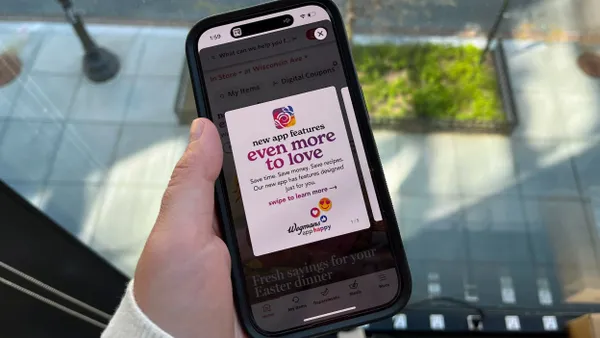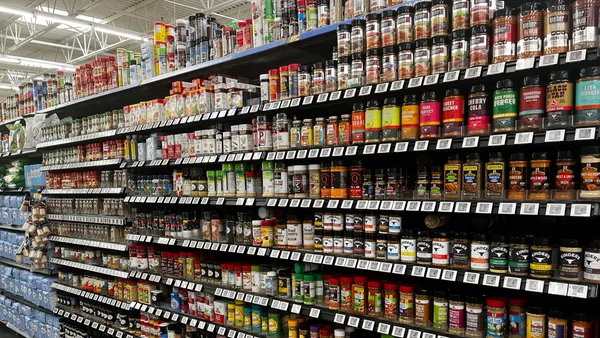LAS VEGAS — Kroger has been very busy this year, but according to chief digital officer Yael Cosset, the grocer's multitude of partnerships and investments all boil down to one simple idea: Becoming the most relevant retailer for its customers.
"We want to be the most relevant and we want to be the retailer you think about for any of your grocery and food needs," Cosset said during a keynote discussion at the Groceryshop show in Las Vegas.
This is why the grocer piloted the first autonomous grocery delivery vehicle with Nuro, partnered with Walgreens to test online pickup with the drugstore, acquired meal-kit company Home Chef, made a deal with Alibaba to sell its Simple Truth brand and forged a partnership with Ocado that gives the grocer exclusive access to the e-grocer's fulfillment centers in the U.S.
Cosset says most of these deals fit naturally into the retailer's growth strategy. However, he singled out Ocado for its potential to be transformative. Kroger now offers e-commerce fulfillment — whether pickup, delivery or both — to about 90% of its customers and hopes to give 100% of its customers access to the service by next year, Cosset said. With Ocado, whose first warehouse Kroger expects to bring online within two years, delivery service will become more efficient, more scalable and offer a better experience for shoppers, he noted.
"Ocado is really an opportunity for us to accelerate and improve the quality of the customer experience when it comes to delivery," Cosset said.
Kroger's various initiatives, Cosset added, are in phases ranging from "implementation" to "learning." While Ocado is currently in the implementation phase, some partnerships, like Alibaba, are still in the learning phase as the retailer gauges its selling opportunities abroad.
After months of talks with Alibaba, in November the grocer announced it will begin selling private label products from its organic and natural line, Simple Truth, on Alibaba's Tmail online marketplace. Cossett says the grocer plans to ramp up its assortment and see how the products perform on China's Single's Day on Nov. 11, a similar event to Black Friday that brought in $30 billion worth of sales to Alibaba in one day last year. The companies hope growing demand for organic and natural products in China will drive sales of its Simple Truth line.
It's all about the data
The real payoff for Kroger comes from the data it collects across its various assets. By acquiring or partnering with companies outside its expertise, Kroger can expand its customer data and better understand how customers are using its products and services. This gives the retailer the ability to fine-tune the offerings.
Its merger with Home Chef is a notable example. That $200 million deal is helping Kroger get a better quality product at scale both in-store and online, Cosset said. The company recently began rolling out Home Chef meal kits in stores.
"Today several hundred stores have Home Chef meal kits on the shelf and we continuing to innovate with them both on the product and on the engagement side to expand what is traditionally an e-commerce-only space," he said.
The grocer's e-commerce business has a $5 million run rate and is growing. But Cosset says the narrative is not about shifting sales from stores to online — it's about shifting business away from the competition. The key to doing so, he said, is improving quality and efficiency of the operations and becoming more relevant to consumers so they become more engaged with the brand.
Cosset said Kroger's challenge is to not inject too much money or innovative technology into the space without taking into consideration how it makes sense long-term. Cosset says there are two things for retailers to consider: how to make it as efficient as possible, and how to take advantage of scale. In Kroger's case, the retailer has 2,800 stores with more than 60 million families shopping every year and over 14 million shopping every day.
Looking ahead, Cosset says grocers are preparing for brick-and-mortar stores to play a different role as e-commerce develops to become more experience-focused. He said he expects grocery stores to devote significant square footage to fulfilling delivery and pickup orders, while the rest of the store will be centered around experience.
Growing competition has raised worries with investors and analysts about Kroger's prospects. But for Cosset, the only worry he has is whether Kroger is getting too far ahead of its shoppers.
"If you get too fast or too far ahead of the customer, while it may capture headlines, it creates a lot of tension and friction within your business model," he said. "If you get too far behind you lose to the opportunity to remain relevant."













